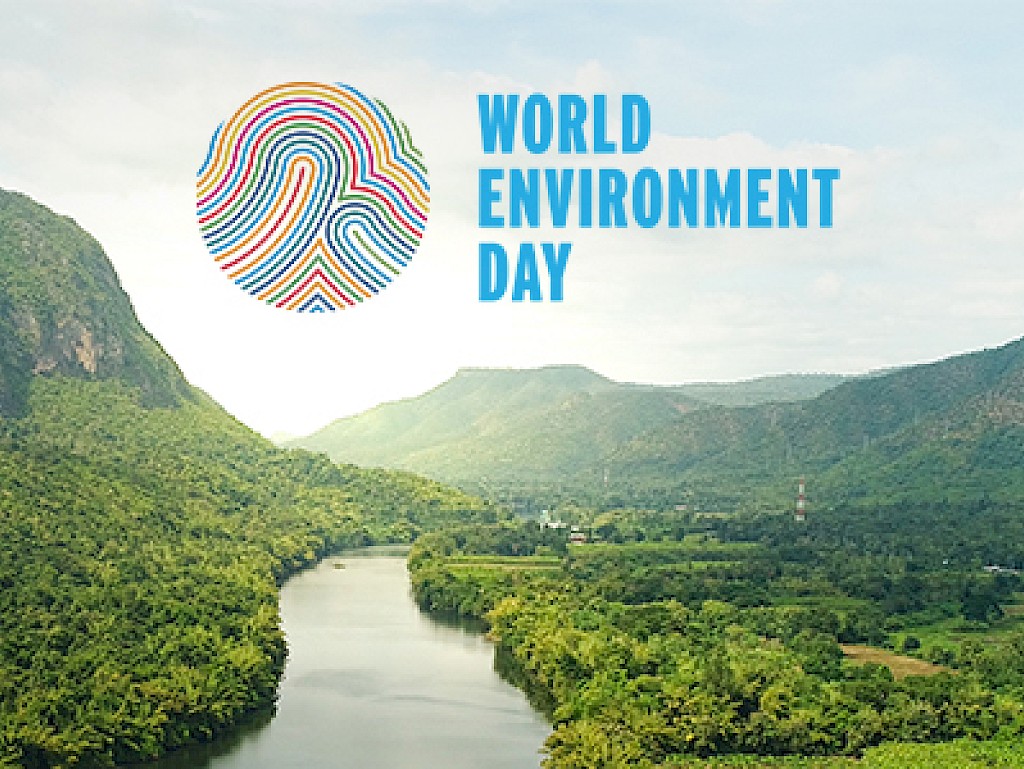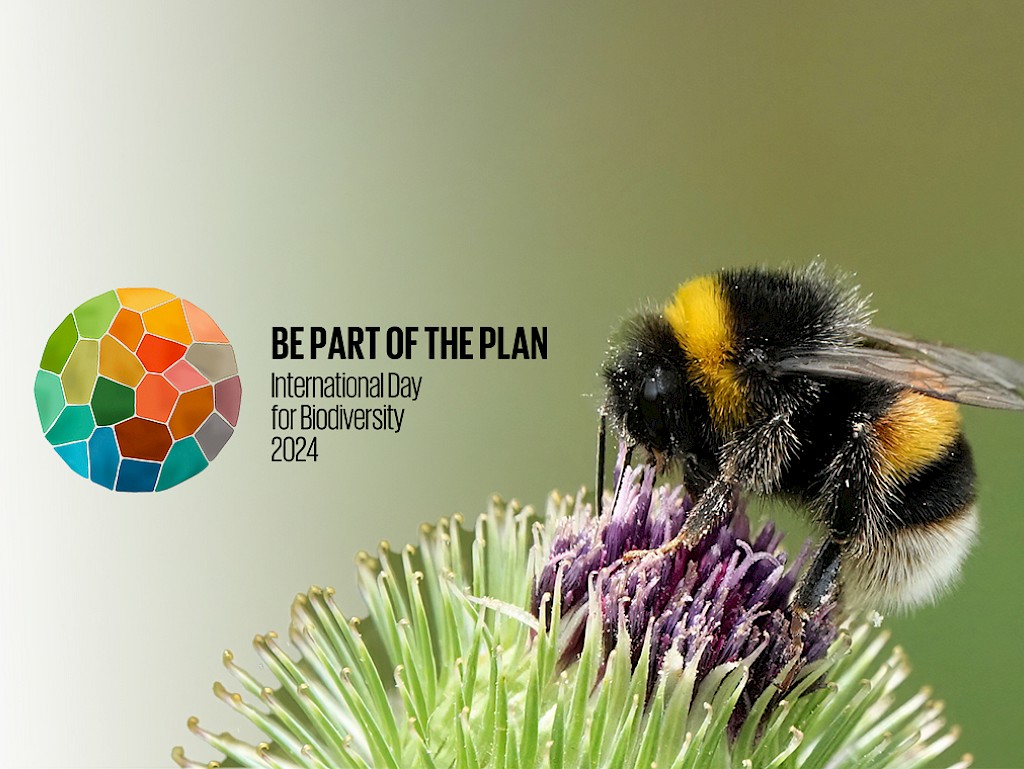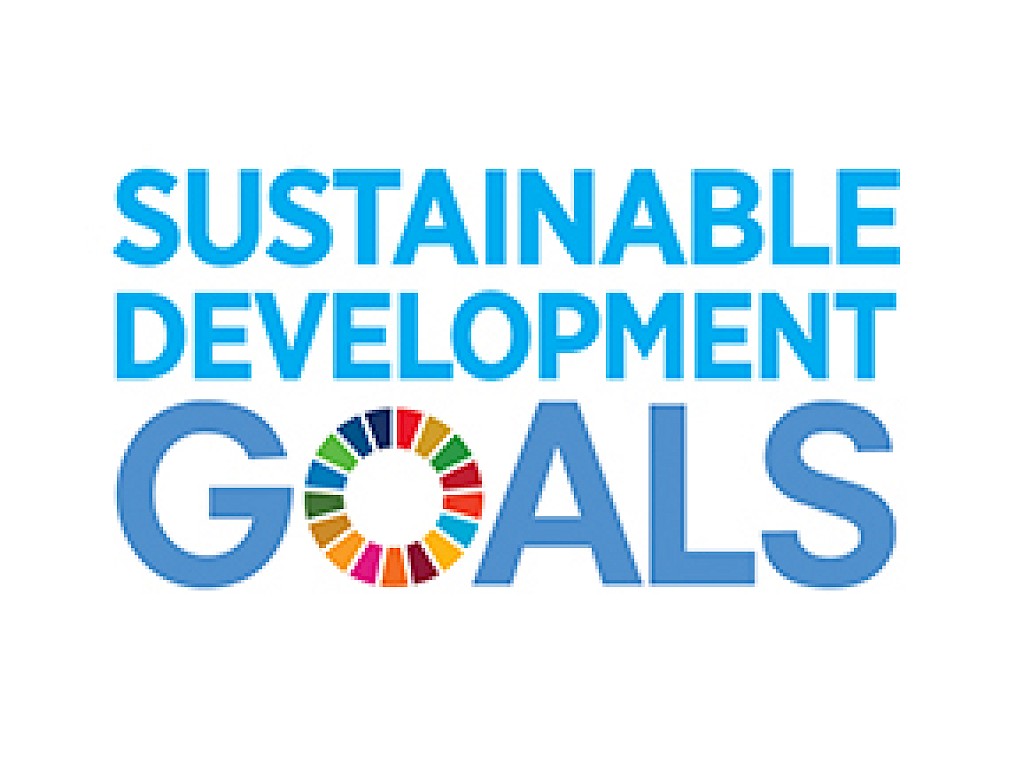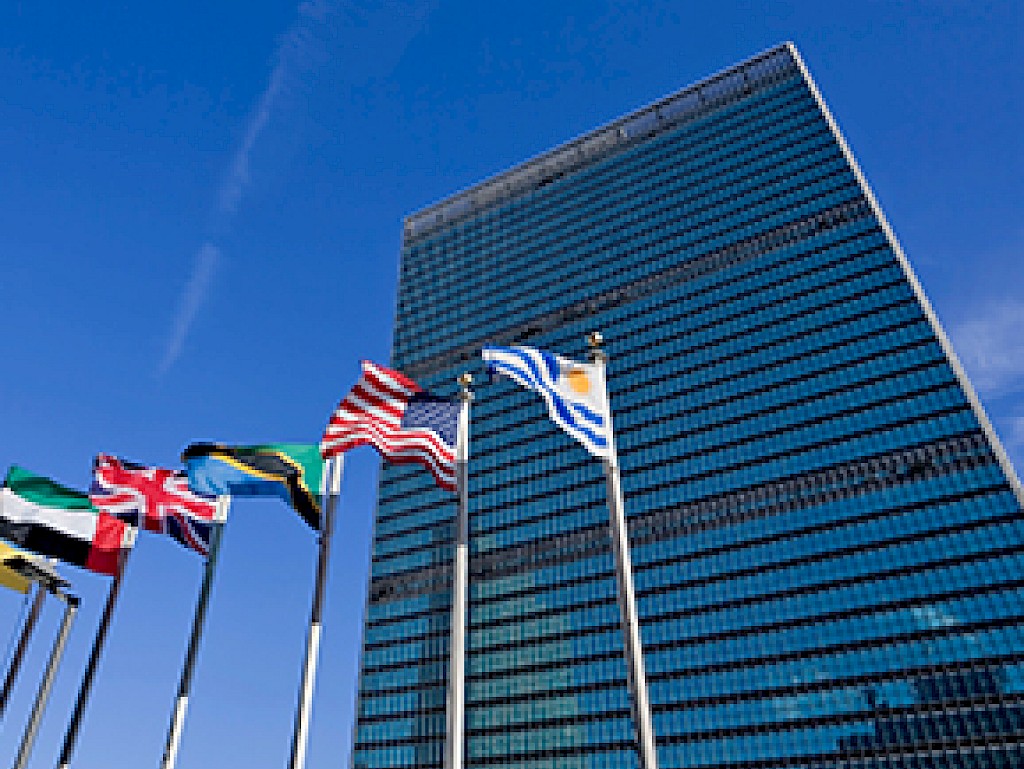About UN World Oceans Day
8 June marks UN World Oceans Day. The day reminds every one of the major role the oceans have in everyday life. The ocean produces at least 50% of the planet’s oxygen, is home to most of earth’s biodiversity, and is the main source of protein for more than a billion people around the world. The ocean is key to our economy with an estimated 40 million people being employed by ocean-based industries by 2030.
The theme of World Ocean Day 2024 is ‘Awaken new depths’, exploring ways to mobilise and unite the world’s population to support the sustainable management of the world's oceans.
How Ipieca works to protect and care for oceans
Offshore environmental good practice
The offshore oil and gas industry operates in a variety of environments, including coastal waters, deep waters and estuaries, as does the emerging offshore wind sector.
Ipieca supports companies to manage and mitigate potential impacts on areas around offshore operations by developing and sharing good practice on a range of topics including environmental impact assessments, the mitigation hierarchy and the treatment of waste water. We also work to ensure that offshore projects enhance benefits for, and avoid or mitigate impacts to, coastal communities.
Marine spill preparedness and response
Ipieca provides guidance and tools to prevent oil spills during drilling and transportation, as well as spills of other fuels. While prevention remains the priority, through our guidance, Ipieca supports companies in their preparation for incident response, as well as through training and capacity programmes run as part of the Global Initiative, established by Ipieca and the IMO.
Decarbonising shipping
Shipping is a key driver of the global economy, however, as an industry it produces greenhouse gases (GHGs) which in addition to contributing to climate change also acidify the oceans.
Ipieca works with the IMO on its analysis of life cycle GHG emissions of shipping fuels and the development of alternative lower-carbon shipping fuels. We also work with a wide range of stakeholders to identify ways to make cleaner marine fuels more readily available to ship owners around the world.
Supporting the Global Biodiversity Framework
The Global Biodiversity Framework (GBF) includes the ‘30 x 30’ target which calls for the protection of 30% of the worlds terrestrial and marine habitats by 2030 and a target on the sustainable management of aquaculture.
Most Ipieca nature guidance is already aligned with the GBF targets and includes guidance on protecting and enhancing marine life and operating near protected areas. Ipieca also supports cross sector and inter-agency efforts to share industry marine knowledge and technology to enhance ocean health and marine biodiversity.
Oceans-related Ipieca guidance
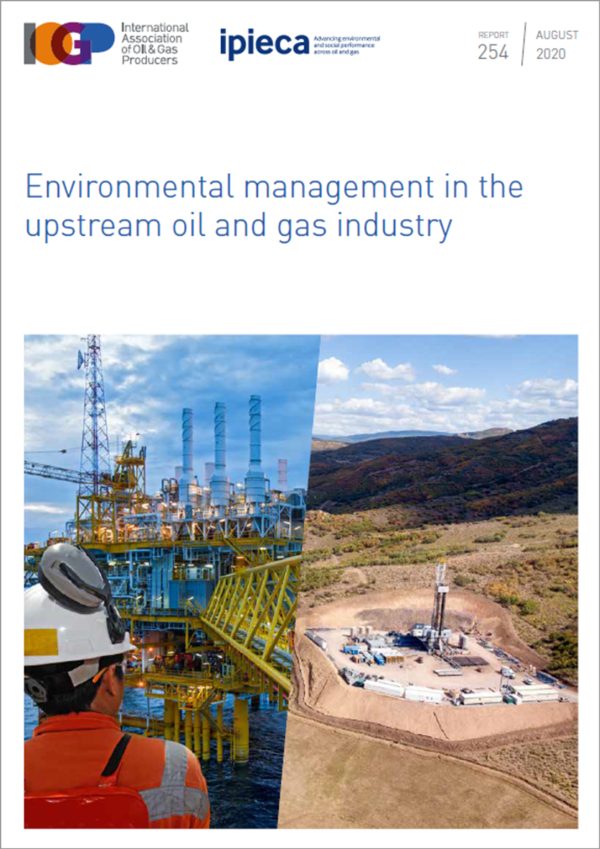 | Environmental management in the upstream oil and gas industry Outlines the latest international environmental management good practice and technology advancements in upstream operations. |
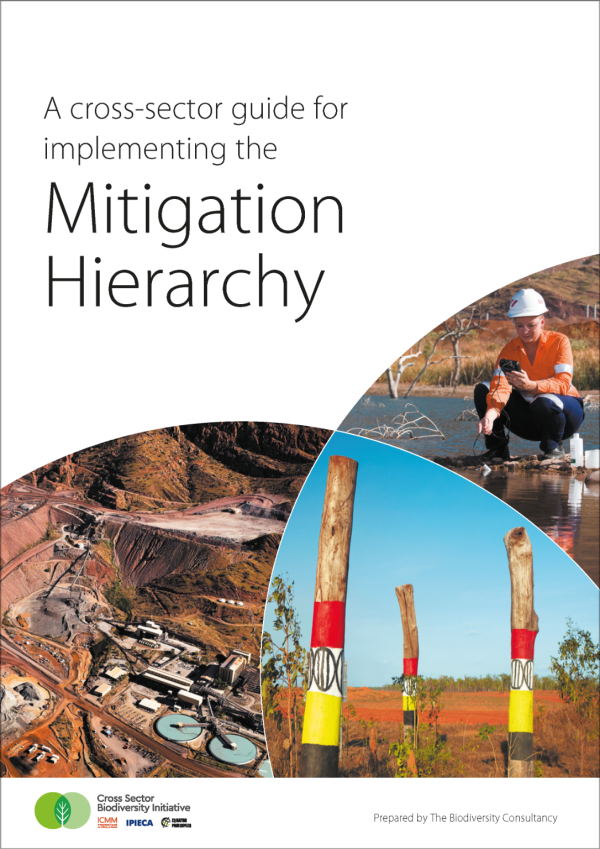 | A cross-sector guide for implementing the mitigation hierarchy Provides practical guidance, innovative approaches and examples to support operationalizing the mitigation hierarchy effectively. It clearly defines the four steps of the mitigation hierarchy - avoid, minimize, restore and offset - and their application with regard to managing biodiversity throughout the life cycle of an extractive project. |
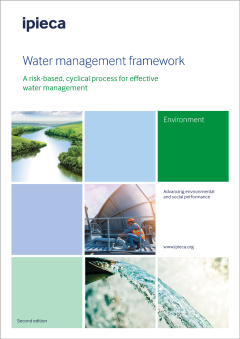 | A risk-based, continuous improvement process to water management which can be applied across any local hydrological, environmental, social-economic and regulatory setting. |
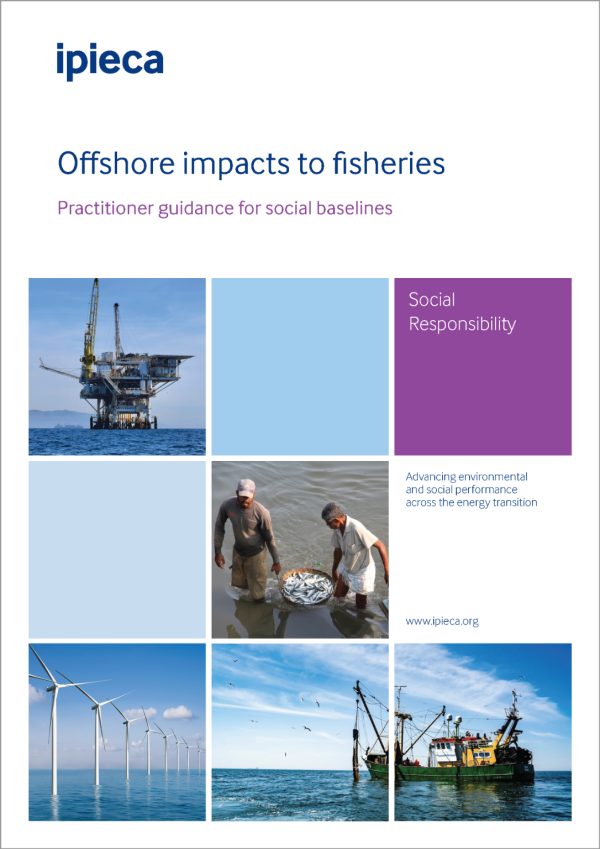 | Offshore impacts to fisheries: practitioner guidance for social baselines Having a well-designed social baseline helps to enhance benefits for, and avoid or mitigate impacts to, fisheries and fishing communities. This guidance contains information on key indicators, data collection tools and techniques, tips and a suite of case-studies from Ipieca members. It is designed to support practitioners in developing robust social baselines. |
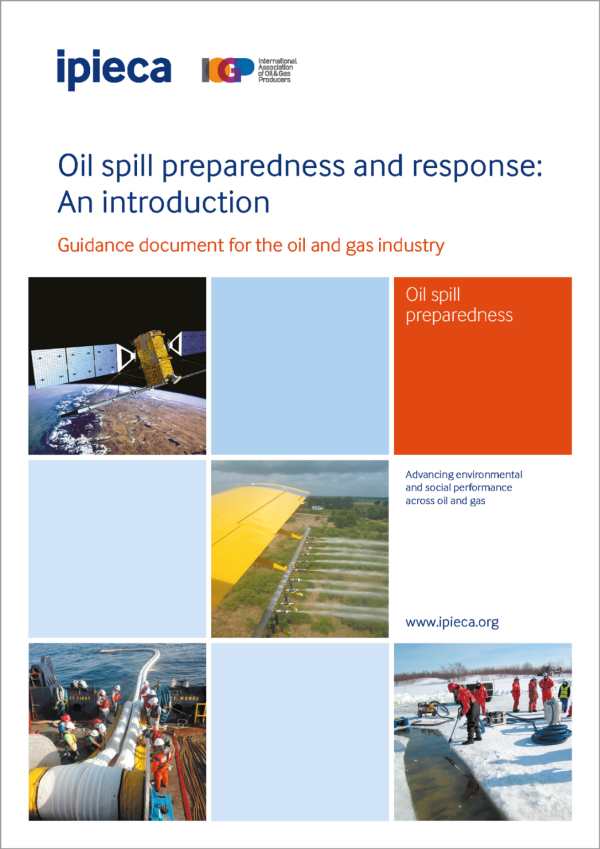 | Oil spill preparedness and response: An introduction Offers an introductory overview of the broad topics of oil spill preparedness and response and provides signposting and hyperlinks to the full range of guidance materials, detailed reports and technical support documents in the Ipieca-IOGP oil spill series. |
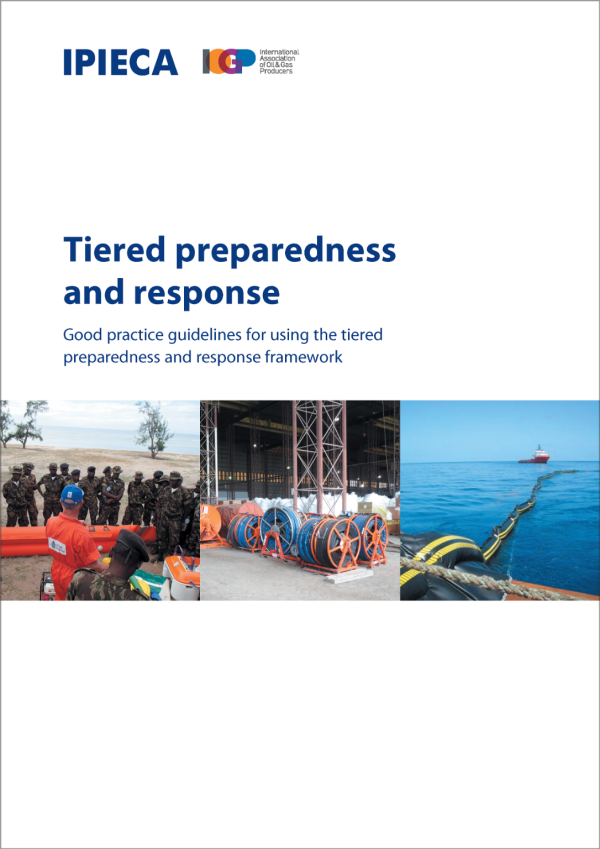 | Tiered preparedness and response Tiered preparedness and response is the basis on which to establish a robust marine spill preparedness and response framework. The three-tiered structure allows for resources to be cascaded to the site of a response in order to effectively respond to any marine spill – from small operational spillages to a worst-case release at sea or on land. |
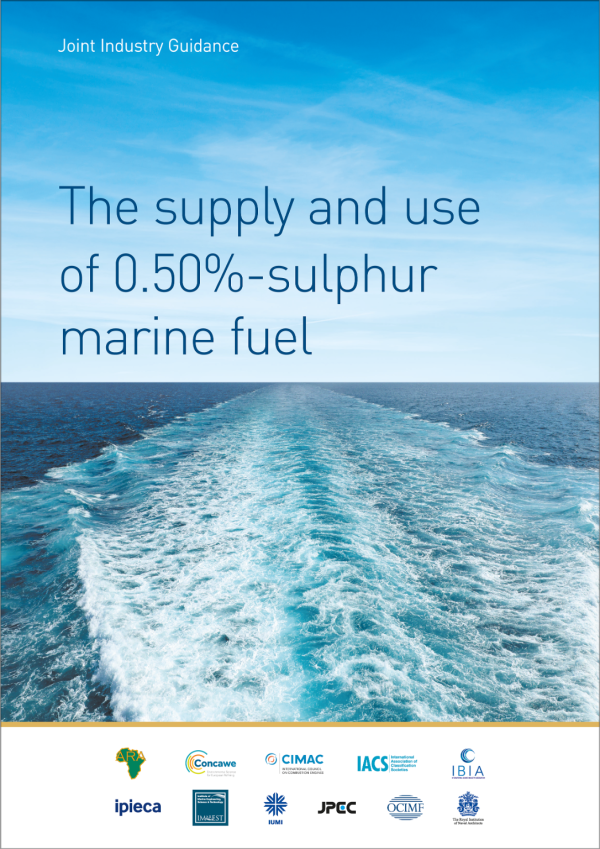 | Joint Industry Guidance on the supply and use of 0.50%-sulphur marine fuel Designed to provide guidance for stakeholders across the marine fuels and shipping industries, from fuel blenders and suppliers to end users. It presents the specific safety and operational issues relating to the supply and use of max. 0.50%-sulphur fuels, an overview of fuel quality principles, and the controls that should be put in place to ensure that safety issues are identified, prevented and/or mitigated. |
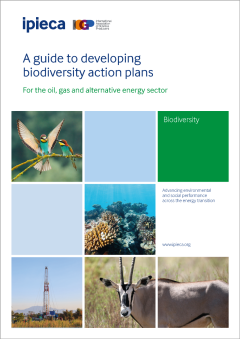 | Guide to developing biodiversity action plans Designed to help health safety environment/sustainable development (HSE/ SD) professionals - those involved in environmental management for project planning - to develop biodiversity action plans for their activities and projects in the oil, gas and alternative energy sector. |
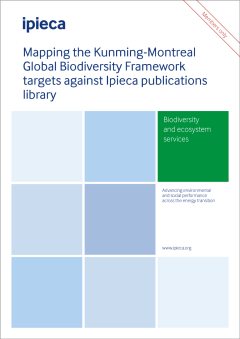 | Mapping the GBF targets against Ipieca publications (members only) Ipieca conducted a mapping exercise exploring the links between the 23 GBF targets and Ipieca good practice guidance. The exercise demonstrated that there are several industry practices which contribute towards the GBF targets. |
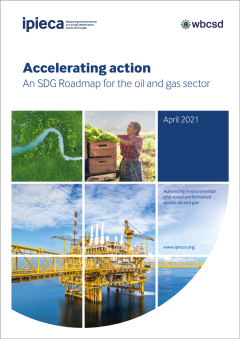 | Sets out SDG impact pathways across the systemic themes of climate, nature and people to accelerate action on ten priority SDGs including SDG 14 Life below water and SDG 15 Life on land. There are two nature impact pathways: resource management; and biodiversity, land and water stewardship. |
